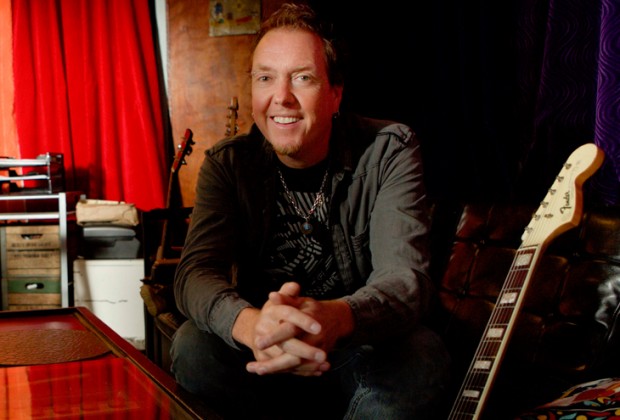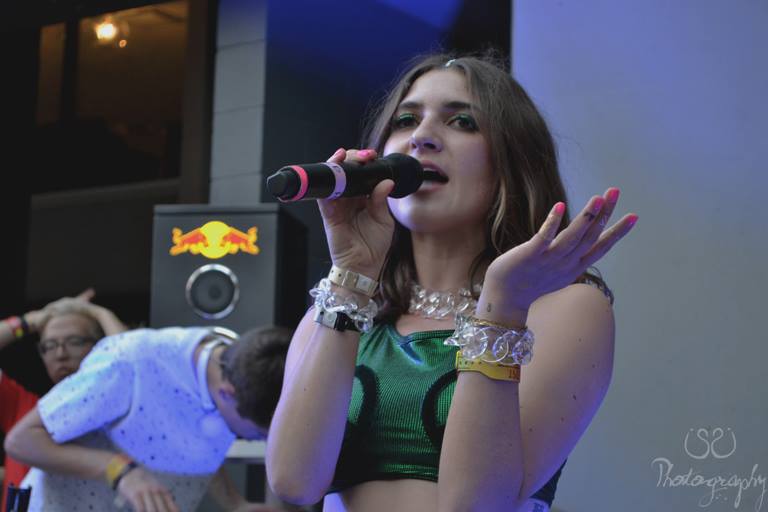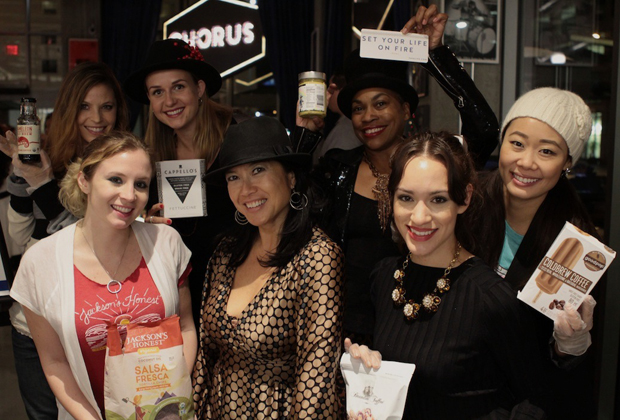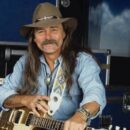With co-writing and production credits on two mega-successful songs, “Ex’s and Oh’s” by Elle King and “Fight Song” by Rachel Platten, Dave Bassett is enjoying a banner year. “Both are new voices, examples of stars aligning and me being at the right place at the right time,” says the songwriter/producer/musician of these tandem hits.
As a diverse range of credits from Fitz and the Tantrums to Idina Menzel confirms, Bassett’s ability to contribute whatever elements are needed in multiple styles is his forte. “I’ve always prided myself on being able to step into any room and being able to contribute, whether it’s lyrics, melody, track or whatever,” he notes.
Originally from Chicago, Bassett came up as a rock musician. He was working a straight job in finance when, in a prophetic episode, he was pulled up from the audience at a U2 concert to play guitar onstage. “It was a sign that there was something out there for me,” he recalls.
He moved to Los Angeles for a band project. “I had a friend from high school, named Rob Jacobs, who ended up being a successful engineer, working with The Eagles and Don Henley, and cutting his teeth working with Jimmy Iovine. Rob had an early demo tape and Jimmy offered this non-existent band studio time and that was the catalyst.”
But Bassett still needed an income, so Jacobs referred him to the Record Plant, the recording studio where he toiled as a night janitor. “It was the heyday of hair metal and a lot of really crazy rock&roll going on. It was really fun––I learned a lot about the studio and the personalities of the business really quickly.”
Bassett worked with Shinedown and was honored with ASCAP Pop Awards for the band’s “Second Chance” in 2010 and “If You Only Knew” in 2011 before going on to co-write their next two full-length albums. He also worked with Halestorm, and contributed as a songwriter to their Grammy-winning 2013 hit “Love Bites (So Do I).”
For the millions who have viewed Elle King’s “Ex’s and Oh’s” video, Bassett says that her onscreen portrayal is dead-on. “You see so many artists who are so cautious about the way that they’re presenting themselves, trying to please the record companies. She is her own person and that’s probably what I love the most about her. A close second is her voice, which is amazing.” Written with Bassett playing an old Kay guitar, the song was recorded in a couple of hours. “The demo is actually the recording. She sang it three or four times and all the guitars are first takes.”
“Fight Song,” Bassett says, mirrors the frustration that Rachel Platten was experiencing in her career. Although the label liked it, nothing happened until Platten began doing a record on her own and released the song on the Internet. “She found out about this woman on the East Coast, who had advanced stage cancer and ‘Fight Song’ became her mantra. Rachel took a camera crew and surprised the woman with the song. The video went viral and picked up some steam, then a station in Baltimore started playing it and requests came flooding in.”
With a solar-powered studio in Malibu and a variety of projects on the horizon including machineheart, a new band signed to Columbia that he is developing, Bassett appreciates the success that his longevity has provided. He also wants new creators to understand that they have unprecedented power. “When I started out you needed to go to a big studio. Now with a laptop and a couple of hundred bucks you can have the same program that every world-class producer is using. Learn to do everything yourself so you don’t have to rely on anyone.”
Basset notes that because of recording software and TuneCore, an aspiring artist can not only make a record but also distribute it in the same fashion as a major label. “When kids realize they have that power, then they’re not creating music for their own amusement in the bedroom. They have a voice that can be heard around the world.”
Contact Carla Senft, Press Here Publicity












